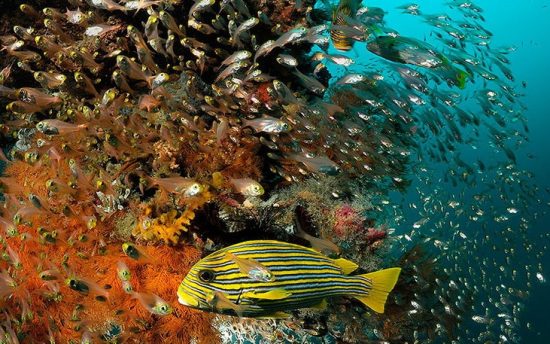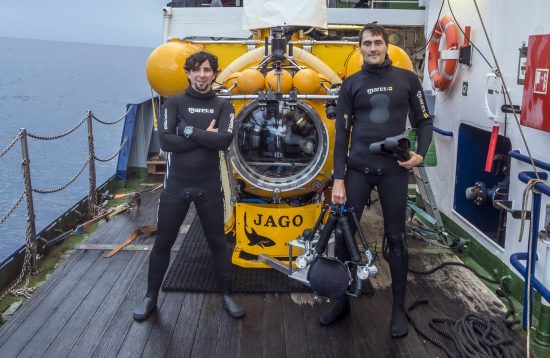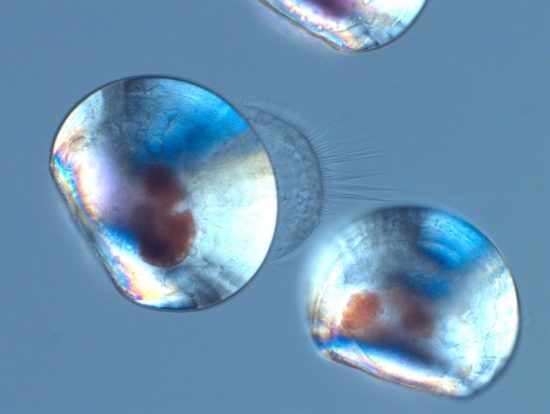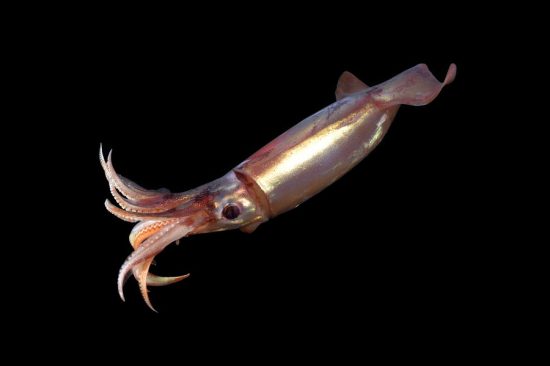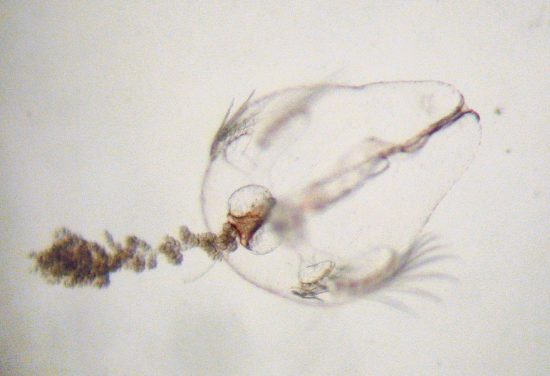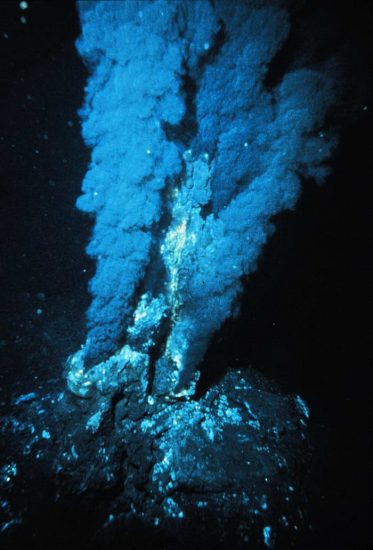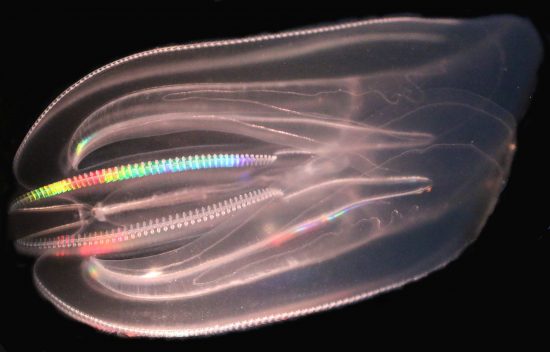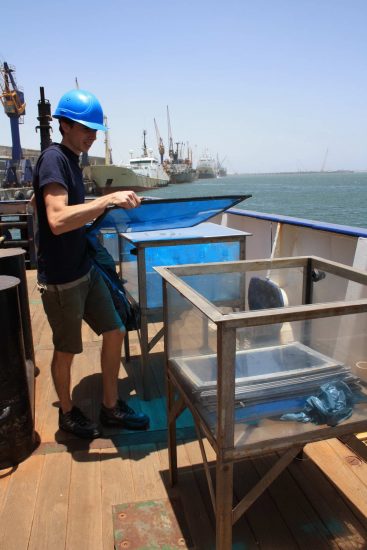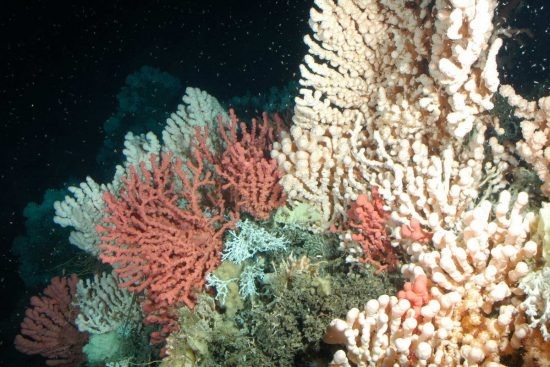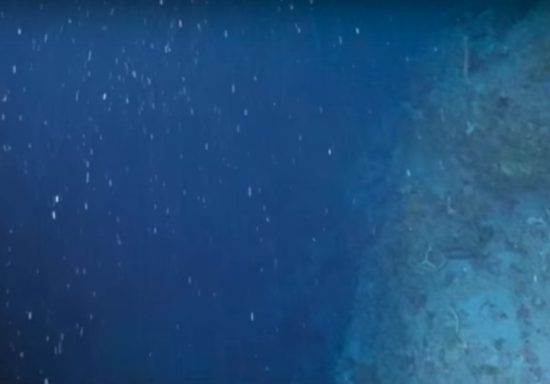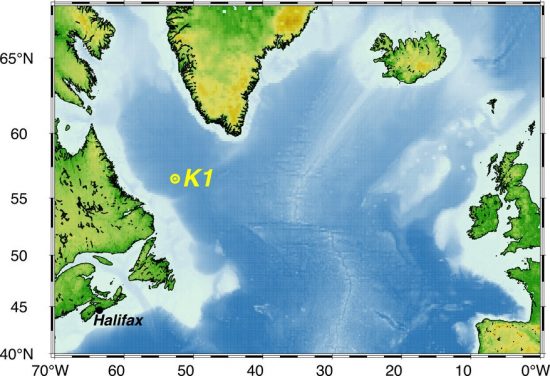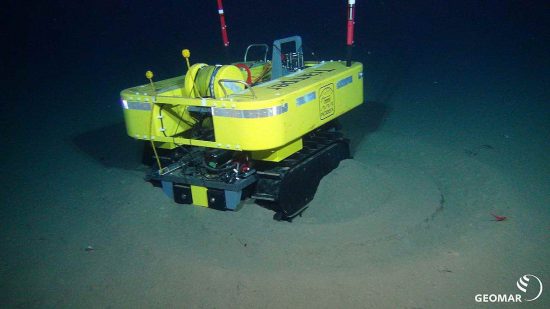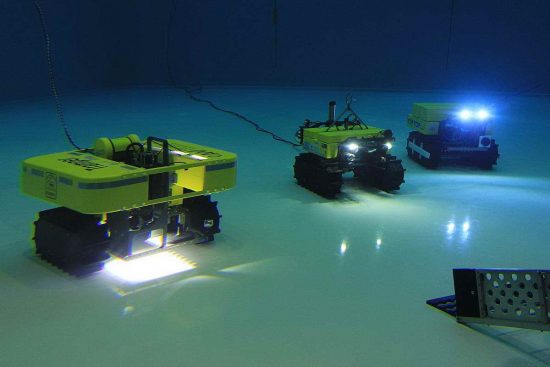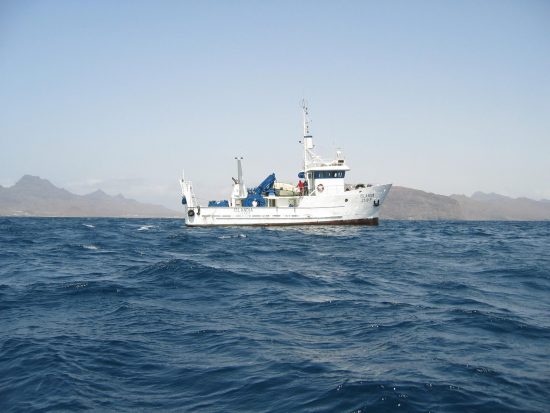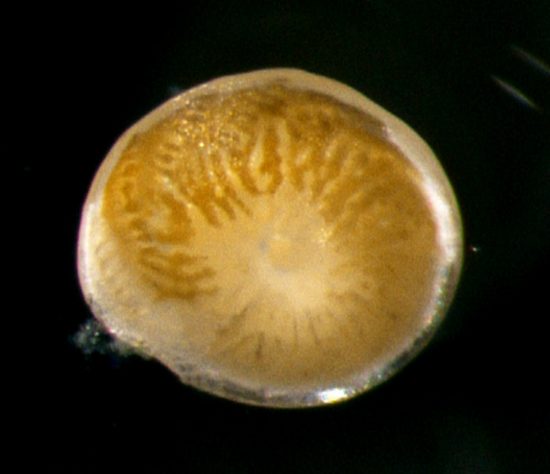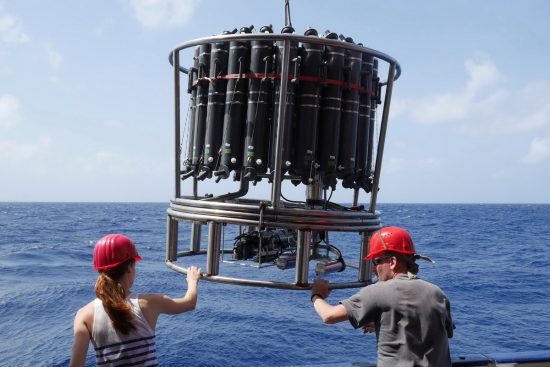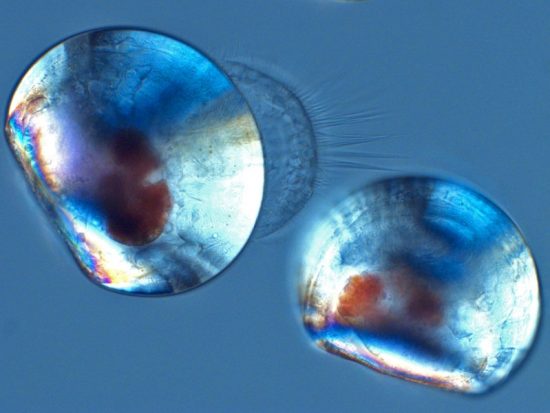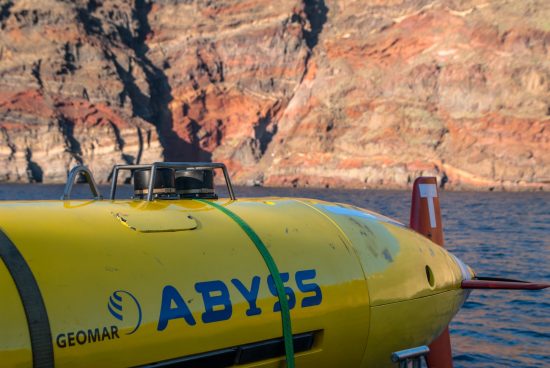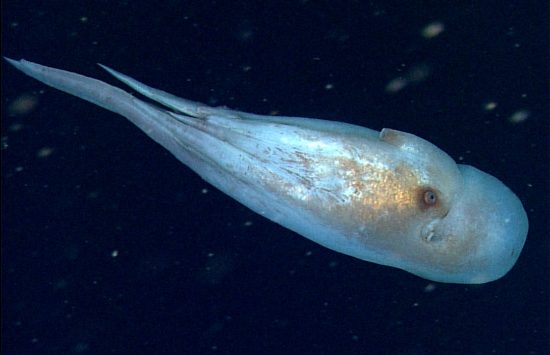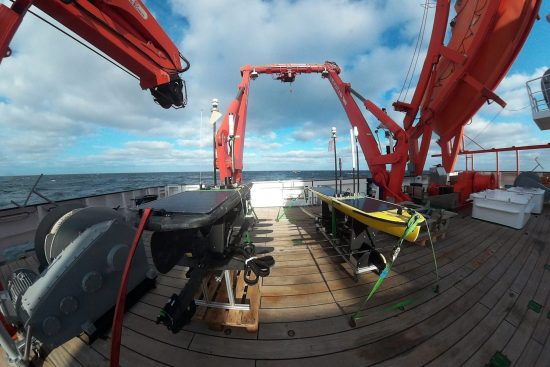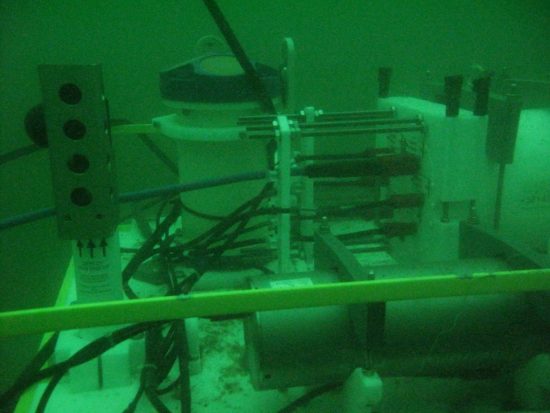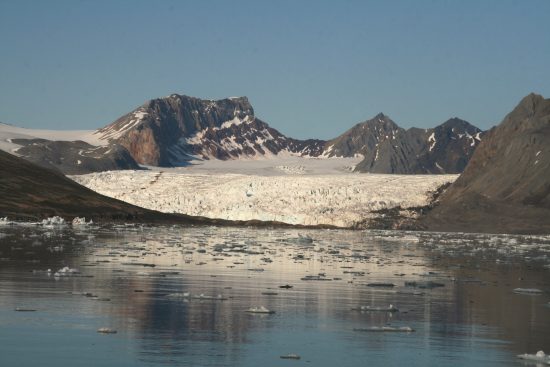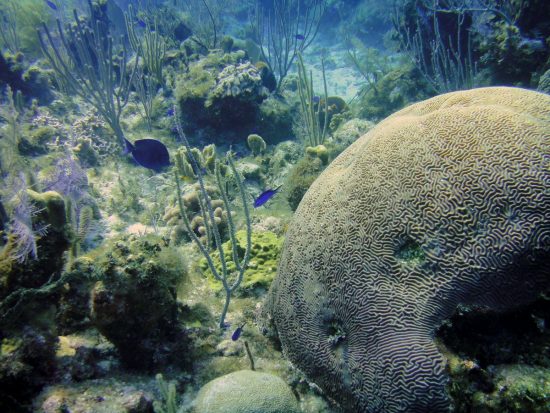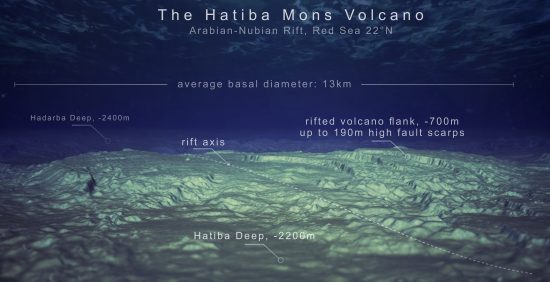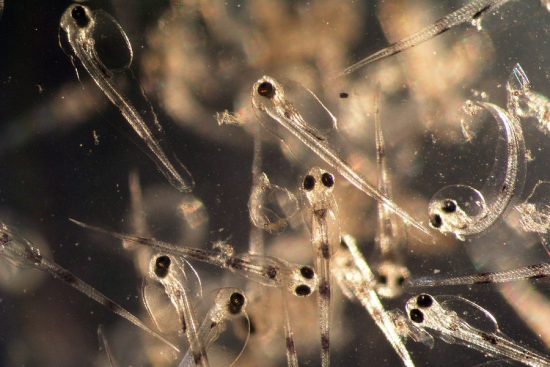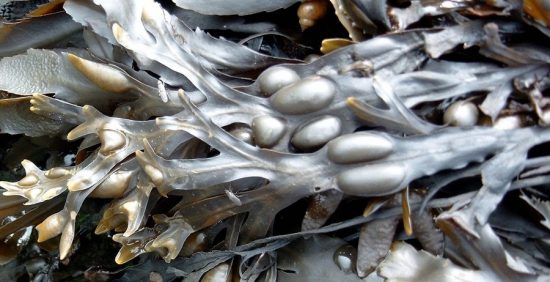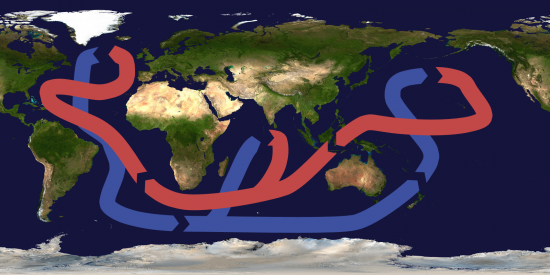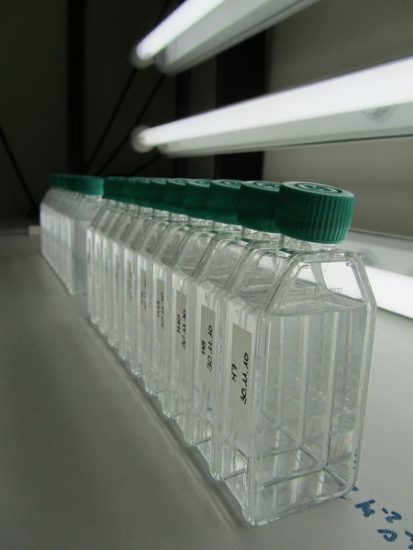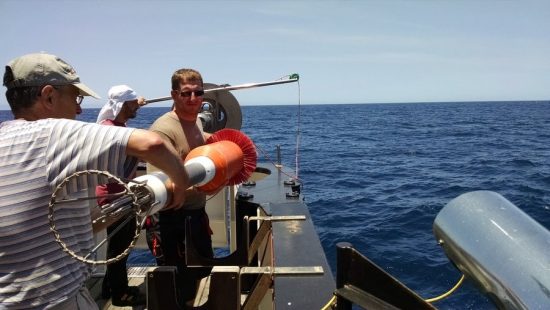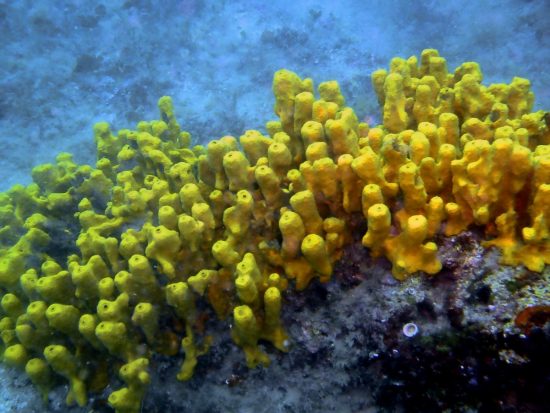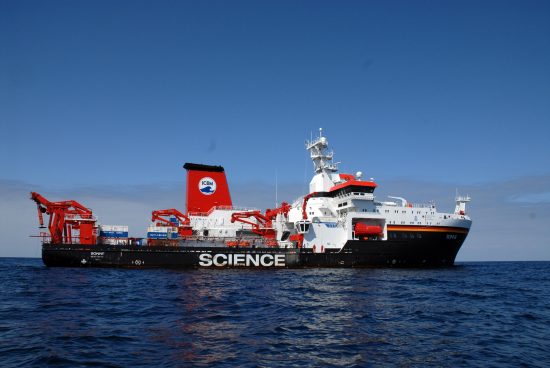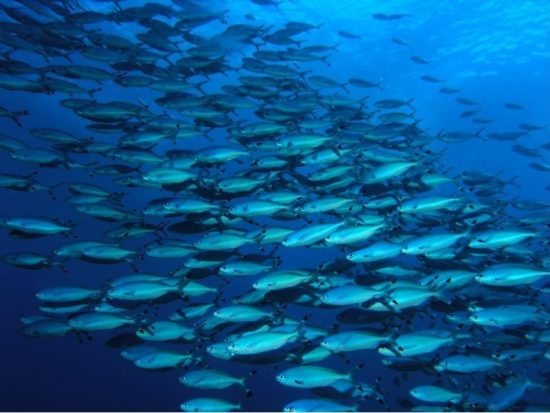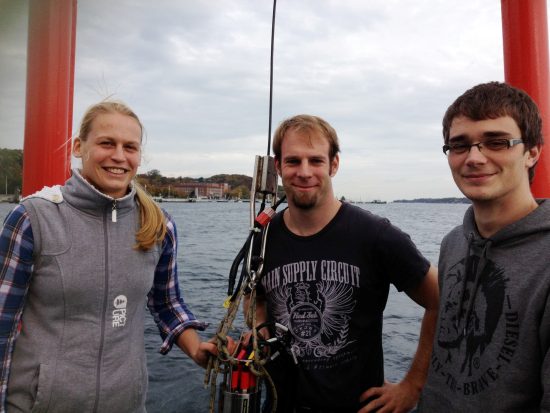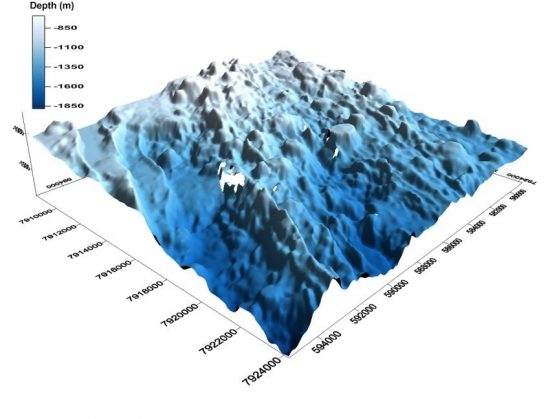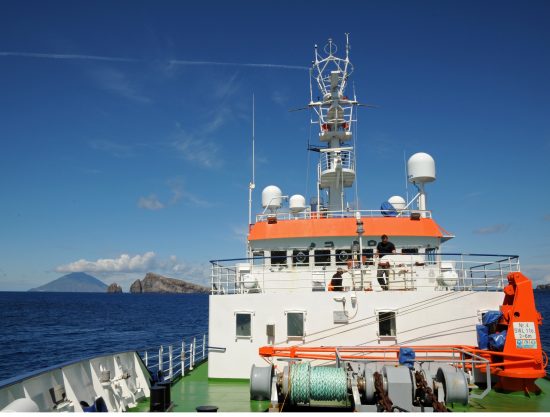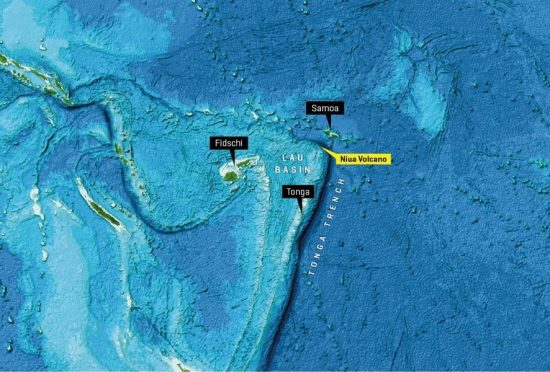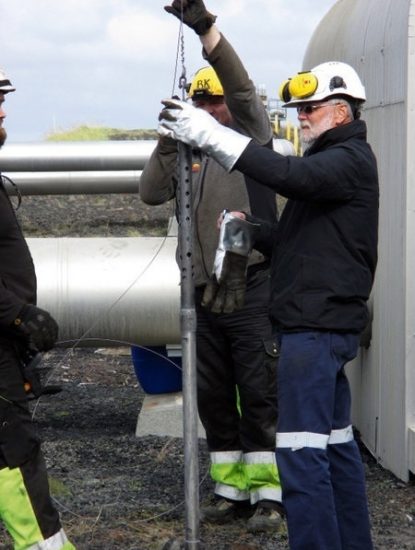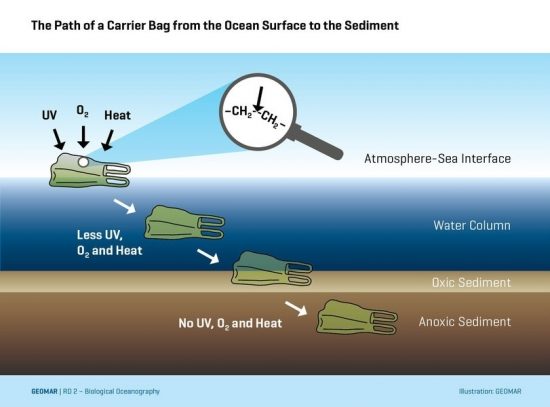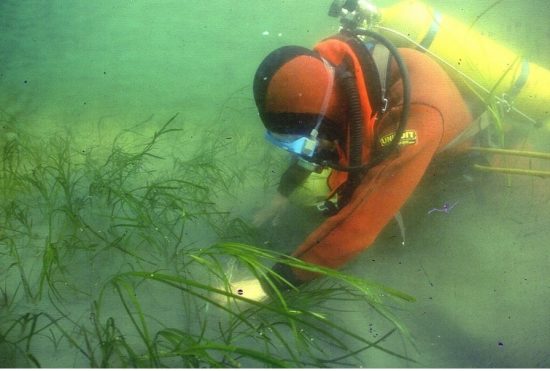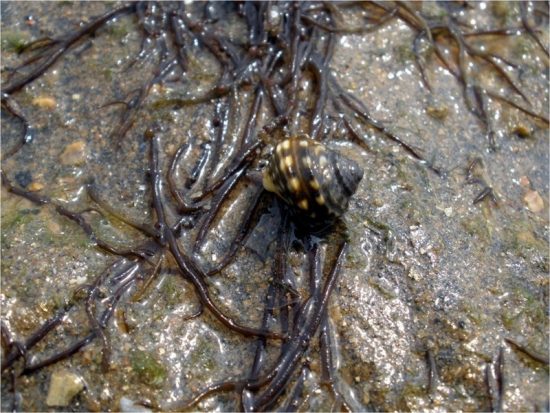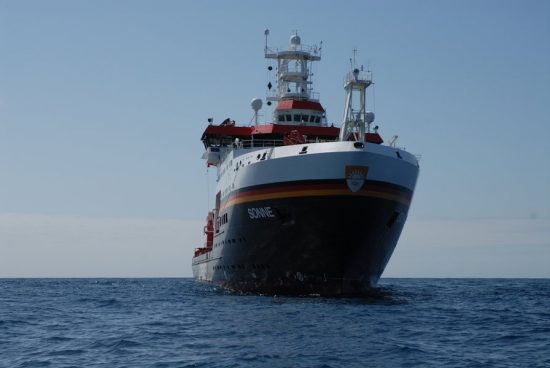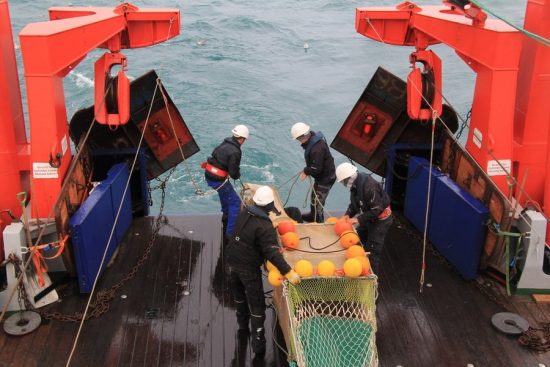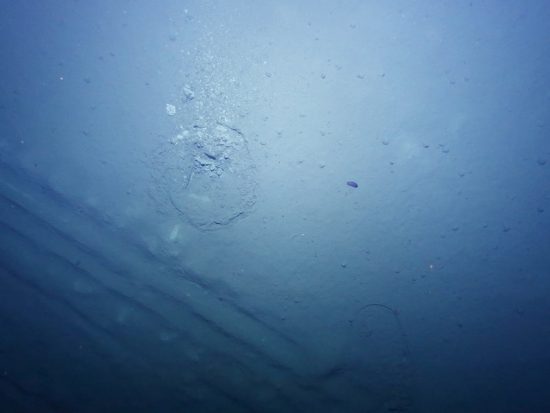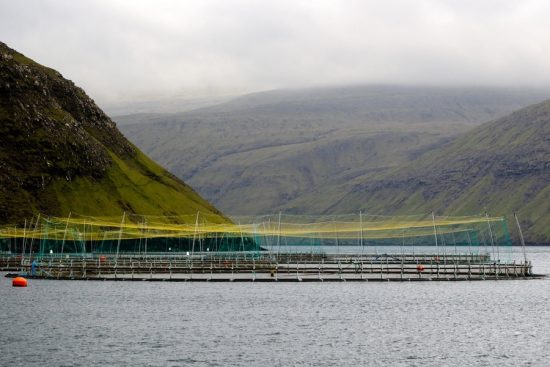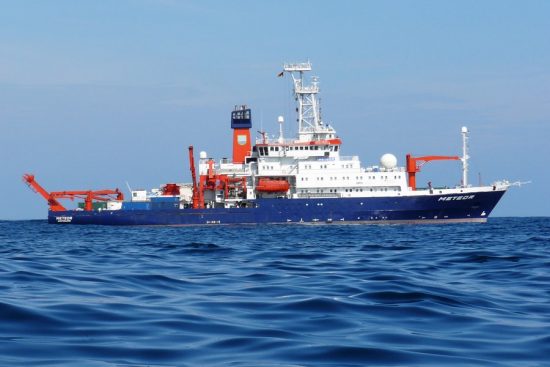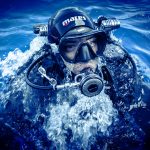
Photo exhibition on ocean acidification opens at GEOMAR
by Mares - 27th September 2016
A new photo exhibition by two nature photographers centres on the organisms on which climate change research is currently focused…
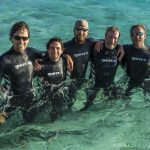
Open Ocean Research
by Submaris - 10th April 2018
The Big Blue! Finally! After three days of travelling via plane, a short delay of one day due to carnival,…
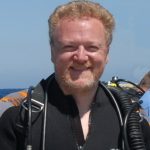
Ocean acidification affects mussels in early life stages
by Herbert - 11th January 2018
Marine scientists show impact of acidification on mussel larvae Shells have a hard, calcareous shell to protect themselves against environmental…

Cuttlefish: underestimated players in the ocean
by Herbert - 9th January 2018
Squids play an important role in the food web and in the carbon cycle Squid are marine creatures with fascinating…

Scientists discover flexible self-healing ability in ctenophora
by Herbert - 6th December 2017
Wound healing or regeneration – the environment decides Losing a body part is almost always an irreversible situation for humans…

Seawater cools upper layers of earth’s crust
by Herbert - 29th November 2017
Seawater penetrates much deeper than expected How deep can seawater penetrate through cracks and fissures into the seafloor? Using a…

Faster reproduction ensures immigrant species success
by Herbert - 19th November 2017
Why only a few introduced species establish themselves in foreign marine regions The number of non-native species detected for the…

Nutrient Mix enables phytoplankton to flourish
by Herbert - 6th November 2017
Combination of nutrients is necessary to promote plankton growth For the food webs in the ocean and processes such as…

Scientists present research results on ocean acidification
by Herbert - 31st October 2017
Ocean acidification and warming affect life in the sea In November 2017, the final phase of the German research association…

Marine Snowfall at Equator
by Herbert - 13th October 2017
Detailed picture of biological particle flow to deep sea along the equator Animal excrement and parts of dead organisms constantly…

Researchers measure unusually high oxygen uptake in the Labrador Sea
by Herbert - 13th September 2017
Ocean taking a deep breath? Stormy, rough and very cold: these characteristics of the Labrador Sea may initially seem uncomfortable,…

Arctic: AWI underwater robot Tramper successfully recovered
by Herbert - 31st August 2017
Almost 60 weeks of measurements of oxygen content at the bottom of the deep sea obtained On 27 August 2017,…

Underwater robot “TRAMPER” to surface after a year in the Arctic deep sea
by Herbert - 22nd August 2017
Helmholtz Alliance ROBEX tested innovative technologies on expedition On Tuesday, August 22nd, the research vessel Polarstern will set off on…

Low-oxygen eddies in Atlantic produce greenhouse gases
by Herbert - 28th July 2017
International researchers discover previously unknown processes In 2014, an international research team led by the Kiel Cluster of Excellence “The…

Rabbitfish as trojan horses
by Herbert - 2nd June 2017
Researchers identify fish’s role in movement of invasive species. For some time, invasive species have been spreading from Indo-Pacific to…

Iron deficiency inhibits marine microbes
by Herbert - 26th May 2017
Scientists discover important process in nutrient cycle in tropical North Atlantic Iron has been identified as an important nutrient for…

Kiel Fjord as training ground for mussels
by Mares - 4th May 2017
Genetic adaptation likely to have occurred over many generations Mussels from the Kiel Fjord were discovered to be able to…

Santorini: How explosive was the Aegean?
by Mares - 18th April 2017
German-Greek research team investigate Santorini's volcanic pastThe Santorini archipelago in the southern Aegean Sea is one of the best spots…

Haliphron atlanticus: Deep-sea octopus feeds on jellyfish
by Herbert - 30th March 2017
Octopus then uses tentacles of jellyfish to defend itself The open ocean is the largest habitat on Earth. Within this…

Wave-Glider: Keeping track of marine research in real time
by Mares - 3rd March 2017
Online portal for Wave Glider missions launchedWave Glider missions can now be viewed online – and they are live. Operated…

New ocean measuring station at Boknis Eck
by Mares - 1st February 2017
GEOMAR and Helmholtz Center Geesthacht install new sensor node in Baltic Sea Boknis Eck (Boknis Corner) – a name familiar…

Octopus Casper: Deep-sea octopuses require manganese nodules to lay their eggs
by Herbert - 22nd December 2016
Casper the octopus (and counterparts) threatened by deep-sea miningFor deep-sea octopuses, manganese nodules on the seabed are an important breeding…

New insights into the changes of the Nordic Seas during interglacials
by Mares - 5th December 2016
The characteristics of the water masses in the Nordic Seas are expected to change due to the Earth's higher temperatures…

Environmental factors, not just climate change, can also affect isotopic composition of corals
by Mares - 28th September 2016
Important details found in calcium carbonate skeletons of corals The calcium carbonate skeletons of corals retain important details about their…

Seafloor of Red Sea formed at least 12 million years ago
by Herbert - 20th September 2016
Discovery overturns present understanding of region’s geological development Geoscientists find the Red Sea fascinating as it represents an ocean in…

Ocean acidification puts cod larvae in Atlantic under threat
by Mares - 27th August 2016
Population of cod has come into increasing pressure The increased acidification of the ocean may lead to twice as many…

Essential seaweed species in Baltic Sea under threat
by Mares - 11th August 2016
The Baltic Sea’s biomass of bladder wrack (Fucus vesiculosus) may soon decline due to rising sea temperatures and the presence…

Energy exchange between ocean and atmosphere influences Gulf Stream
by Mares - 6th August 2016
New finding will lead to better climate simulations Consider the Gulf Stream as Northern Europe’s hot-water heating system. As like…

Limitations of adaptation in ocean acidification
by Mares - 21st July 2016
Examining the evolutionary adaptation of unicellular phytoplankton Through the process of evolution, the coccolithophore Emiliania huxleyi, a unicellular phytoplankton, has…

Scientists gather new data on effects of El Niño
by Mares - 18th July 2016
Findings indicate changes in equatorial undercurrent. October 2015 saw one of the strongest measured El Niño occurrences in the eastern…

Pipefish give birth to conjoined twins
by Mares - 27th June 2016
Extremely rare to have two conjoined twins within 24 hours During a routine experiment, researchers at GEOMAR Helmholtz Centre for…

Researchers discover that sponges are host to surprising diverse range of microbes
by Herbert - 17th June 2016
Discovery opens door to potential new discoveries in the futureSponges are important hosts for microbes, making up a significant part…

Deciphering the history of plate tectonics in North Pacific
by Mares - 14th June 2016
Researchers embark on ten-week expedition The land along the archipelago of the Aleutian Islands and the Kamchatka Peninsula is one…

More than ten MSC-certified fish products found to be overfished
by Mares - 31st May 2016
Many European fish stocks are overfished or are under threat of being overfished. A recent study reveals that more than…

Proportion of unicellular plankton much higher than previously thought
by Mares - 29th April 2016
Unicellular planktonic organisms play a more important role in the marine ecosystem than previously thought. This was the conclusion drawn…

Researchers use new method to date lava flows
by Mares - 11th April 2016
To better understand the formation of the Earth's crust, scientists at the GEOMAR Helmholtz Centre for Ocean Research Kiel have…

Tsunami risk at Mount Etna? Scientists install geodetic network at the foot of Europe’s largest volcano
by Mares - 29th March 2016
Measurements taken by satellites indicate that the eastern flank of Mount Etna is slowly sliding into the Ionian Sea. However,…

Researchers compile 3-D map of hydrothermal field in Pacific
by Mares - 23rd March 2016
Using the latest 3-D camera technology, scientists from GEOMAR Helmholtz Centre for Ocean Research Kiel is investigating a hydrothermal vent…

High concentrations of gold found in Iceland’s geothermal systems
by Mares - 25th February 2016
On Iceland's Reykjanes peninsula, marine scientists found themselves prospecting for gold when they discovered very high concentrations of gold in…

Researchers measure decomposition in polyethylene and biodegradable bags
by Mares - 15th February 2016
Plastic waste is now found in practically every part of the world, from the Antarctic coasts to the ocean depths.…

Genome of eelgrass mapped for the first time
by Mares - 4th February 2016
The genome of eelgrass (Zostera marina) has been mapped out by scientists after eight years of extensive research. It is…

Gliders collect data on new eddy off Peruvian coast
by Mares - 30th January 2016
In January and February 2013, a subsurface anticyclonic eddy formed in the Peru-Chile Undercurrent, allowing researchers to document the creation…

Invasive seaweed develops stronger defences
by Mares - 4th January 2016
A higher level of defence has been found within an invasive strain of seaweed from Asia that has translocated to…

Can a deep-sea ecosystem recover from human intervention?
by Mares - 26th November 2015
What would the ecological consequences be if the quantity of polymetallic (e.g. manganese) nodules in the deep sea was reduced? Would…

German research network on ocean acification concludes
by Mares - 8th October 2015
An in-depth assessment of the possible impact of ocean acidification on the environment, society and economy, as well as the…

Photo mosaic marks successful end to expedition
by Mares - 22nd September 2015
Scientists return to ploughed seafloor to assess condition of terrain Imagine gigantic unmanned crawler vehicles moving along pre-programmed paths on…

Global overfishing accelerated by economic development
by Mares - 16th September 2015
Study calculates development of fish stocks In the long term, the wild fish population cannot be sustained by increasing aquaculture…

Nitrous Oxide From The Sea
by Mares - 26th June 2015
Kiel marine scientists have discovered that the South-East Pacific region has been emitting more nitrous oxide levels than previously expected.…





